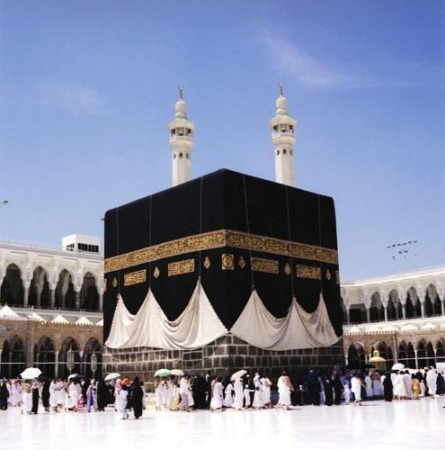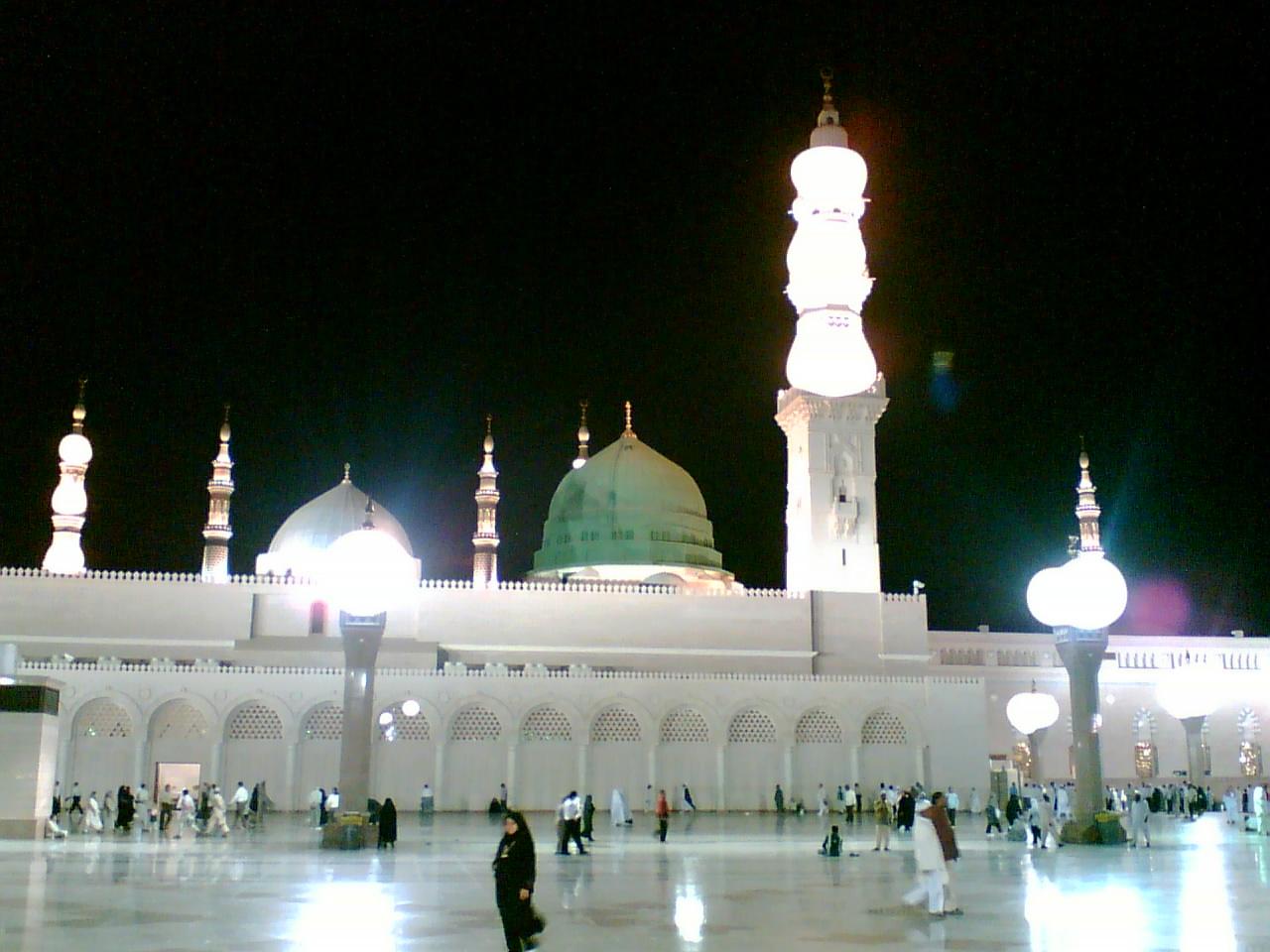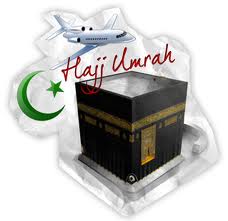

Phone/Fax: +91 522-4079380 Mobile: +91 9838659380, 8090029380 Emails: umrah@shizatravel.in, info@shizatravel.in, shizatravel.in


Phone/Fax: +91 522-4079380 Mobile: +91 9838659380, 8090029380 Emails: umrah@shizatravel.in, info@shizatravel.in, shizatravel.in
Umrah - A Visit to the House of ALLAH (s.w.t.)


"Indeed, the first House [of worship] established for mankind was
that at Makkah - blessed and a guidance for the worlds.” (Surah
Aal-e-Imran, Verse 96)
A
recent study shows that more than two-thirds of the pilgrims who
performed Hajj rituals for the first time could not perform them
correctly. Lack of authentic knowledge, well designed knowledgeable
books and unfamiliarity with places and ritual terms cause many
problems to the pilgrims.
Narrated
Abu Huraira (Radi-Allahu 'anhu) : Allah's Apostle (Sallallahu
'Alaihi Wa Sallam) said, "(The performance of) 'Umrah is an
expiation for the sins committed (between it and the previous one).
And the reward of Hajj Mabrur (the one accepted by Allah) is
nothing except Paradise." - Bukhari Vol. 3 : No. 1
Being such an important act of worship, we sincerely understand at Shiza Travel Services how important it is for the prospective pilgrim to find the right kind of package to suit his/her needs. You will find us honest and straight forward in our dealings, always doing our utmost to recommend the package that best suits your requirements and providing accurate descriptions of all the services provided. We place great emphasis on these points and after several memorable and successful Umrah trips, we can honestly say that you will always be met with a friendly and helpful service, reflecting a high degree of professionalism.
Shiza Travel Services connection of Saudi Arabia
Shiza Travel
Services is contracted to some of the largest and most
reputable Umrah service providers in Saudi Arabia – with many years
experience in providing quality Umrah travel.. We are therefore
able to provide a quality and reliable service to all Umrah
travellers from the moment they first make contact with us until
they return home.
We work hard to select and combine the best accommodation with the highest facilities to formulate a package that offers fantastic value for money. All of the hotels are very close to the Haram. We understand the importance of performing Umrah, and plan to make this highly prestigious trip as convenient as possible for you so that you remain fresh and able to utilise your efforts in the worship of Allah.

Packages
If
you prefer the freedom of planning your Umrah trips in your own
individual way, then our tailor made Umrah packages are for you. We
can make all the necessary arrangements for you from visas and
flights to hotel bookings. We have a wide variety of hotels that we
can book for you from 5 star deluxe to budget 3 star.
Umrah Group
Package
Umrah Family
Package
Umrah Ramzan
Package
MUST READ - ALL YOU WANT TO KNOW ABOUT
UMRAH
Umrah
is a great Sunnah of our beloved Prophet (PBUH). It is an act of
worship somewhat similar to Hajj, but with lesser rites and shorter
duration.
Let us devote some time here to learn about the
details associated with this great act of Ibadah. We shall classify
our discussion here broadly into three
categories: Significance & virtues of
Umrah, Eligibility criteria,
and How & when to perform Umrah.
A. Significance & virtues of Umrah
There are different views about whether Umrah is obligatory or not. I wish to quote a hadith in this context:
Jabir (RA) narrated that the Prophet (PBUH) was asked about whether Umrah was obligatory? He said, “No. But if you perform it, it is virtuous.”
(Hadith No. 931, Chapters on Hajj, Jami’
At-Tirmidhi, Vol. 2).
Some scholars who are of the view that Umrah is
obligatory consider this hadith as a weak narration, classifying it
as a ‘Daeef’ hadith. However, Imam Tirmidhi classifies this
narration as ‘Hasan Sahih’ (i.e. fairly authentic).
Imam Shafi’s view is that Umrah is a Sunnah
about which we do not know anyone who permitted leaving it, and
there is nothing confirmed about it that it is merely voluntary and
optional. He further says that Ibn Abbas (RA) considered it
obligatory.
Some scholars highlight the importance of Umrah
in another manner. According to them, Hajj is of two types: the
‘Greater Hajj’ (Hajj-al-Akbar) i.e. the Hajj (of the month of Dhul
Hijjah), and the ‘Lesser/Smaller Hajj’ (Hajj-al-Asghar) i.e. the
Umrah.
Whichever view point we stick to, there is no
denying the fact that Umrah is a great Sunnah and whoever is
capable of undertaking the journey for this pilgrimage should do
it.
We have already talked about virtues of Umrah
above and that it is a great Sunnah recommended by our beloved
Prophet (PBUH), though not a farz. Let us learn some more facts
which highlight on the significance of performing Umrah.
A.1. Umrah is an expiation of sins.
It was narrated that Abu Hurairah (RA) said:
Allah’s Messenger (PBUH) said, “From one Umrah to another is
expiation for what comes in between, and ‘Hajj Al-Mabrur’ brings no
reward less than Paradise.”
(Hadith No. 2630, Book of The Rites of Hajj, Sunan An-Nasa’i, Vol. 3; Hadith No. 2888, Chapters on Hajj, Sunan Ibn Majah, Vol. 4).
This narration highlights the virtues of
performing Umrah, as doing one Umrah after another removes all the
sins of a person during that period.
A.2. Umrah removes poverty.
This is proven from following narration:
Ibn Abbas (RA) said: Allah’s Messenger (PBUH) said, “Perform Hajj and Umrah consecutively; for they remove poverty and sin as bellows removes impurity from iron.”
(Hadith No. 2631, Book of The Rites of Hajj, Sunan An-Nasa’i, Vol. 3).
Performing Hajj and Umrah consecutively doesn’t
mean that one should keep doing them continuously; rather, it
refers to making Hajj sometimes and making Umrah sometimes.
A.3. Umrah is equivalent to Jihad for some.
It was narrated from Abu Hurairah (RA) that Allah’s Messenger (PBUH) said, “Jihad of the elderly, the young, the weak and the women, is Hajj and Umrah.”
(Hadith No. 2627, Book of The Rites of Hajj, Sunan An-Nasa’i, Vol. 3).
Thus we see that whoever is not capable of
joining Jihad for the sake of Allah, may still reap the rewards
associated with Jihad by performing Hajj & Umrah.
A.4. The person performing Umrah is a guest of (or a delegation to) Allah.
Refer to following hadith:
Abu Hurairah (RA) said: Allah’s Messenger (PBUH) said, “The guests of Allah are three: The Ghazi (i.e. the warrior who fights in Jihad), the Hajj (i.e. the pilgrim who performs Hajj) and the Mu’tamir (i.e. the pilgrim performing Umrah).”
(Hadith No. 2626, Book of The Rites of Hajj, Sunan An-Nasa’i, Vol. 3).
This is a great honour for the pilgrims, as their journey is purely for the sake of Allah. Another beautiful explanation regarding the honour and high status of the pilgrims is reported by Imam Ibn Majah:
It was narrated from Ibn Umar (RA) that the Prophet (PBUH) said, “The one who fights in the cause of Allah, and the pilgrim(s) performing Hajj and Umrah are a delegation to Allah. He invited them, so they responded to Him, and they ask Him and He gives to them.”
(Hadith No. 2893, Chapters on Hajj Rituals, Sunan Ibn Majah, Vol. 4).
This narration tells us that the status of these three categories of persons is so high that Allah accepts their supplications. In another narration (Hadith No. 2892, Chapters on Hajj Rituals, Sunan Ibn Majah, Vol. 4) it is mentioned on the authority of Abu Hurairah (RA) that if they (these three categories of people) ask Allah for His forgiveness, He will forgive them.
What a great honour indeed!
B. Eligibility criteria
وَلِلَّهِ عَلَى النَّاسِ حِجُّ الْبَيْتِ مَنْ اسْتَطَاعَ إِلَيْهِ سَبِيلاً وَمَنْ كَفَرَ فَإِنَّ اللَّهَ غَنِيٌّ عَنْ الْعَالَمِينَ
“And Hajj to the House (Ka’bah) is a duty that mankind owes to Allah, for those who are able to undertake the journey. And whoever disbelieves, then Allah stands not in need of any of the Alamin.”
(Aayah No. 97, Surah Aal Imran, Chapter No. 3, Holy Qur’an).
Referring to the verse mentioned above: “And Hajj to the House (Ka’bah) is a duty that mankind owes to Allah, for those who are able to undertake the journey”, an obvious question comes to our minds: What is the criterion of being able to undertake the journey?
Let us discuss these conditions briefly,
one-by-one:
B.1. The first
condition for a person is that he/she should be able to meet the
financial expenses of his/her journey. Umrah is performed
in Makkah and this requires expenses of journey, provisions and
other miscellaneous things. Whoever is financially weak will not be
able to bear these expenses and hence such a person is exempted
from the obligation of performing Umrah.
B.2. The second
condition for a person is that he/she should be physically fit and
able to undertake a journey. This is yet another
important requirement, for the journey may bring the pilgrim across
some ups and downs (difficulties) which extremely old and sick
persons may not be able to handle alone. Therefore, one has to be
physically stable (well) in order to undertake the journey.
However, such old people may undertake the journey along with some
young persons (like their sons etc.) who can take care of them
during the journey.
B.3. The third
condition for a person is that he/she should be free of
debts. If he/she has borrowed money from someone
earlier, then he/she should pay off the debts before proceeding for
the journey. Umrah can’t be done by borrowed money.
However, if someone willingly sponsors a person financially, then
he/she may do so.
B.4. The fourth
condition is that one should
use Halal wealth. This is very
important, as Allah is pure and He accepts only what is pure.
B.5. Additional
condition for women – All the conditions discussed
above are applicable to both men and women. However, there is a
special condition applicable for women who intend to perform Umrah.
And this condition is that a woman cannot perform
Umrah without a Mahram. Refer to following
narration:
It was narrated from Abdullah bin Umar (RA) that the Prophet (PBUH) said, “It is not permissible for a woman who believes in Allah and the ‘Last Day’ to travel for a distance of three nights, unless she has a Mahram with her.”
(Hadith No. 3260 (1338), Book of Hajj,
Sahih Muslim, Vol. 3).
A Mahram is any person from
opposite gender whom she cannot marry i.e. husband, father,
brother, son, Maternal Uncle, Paternal Uncle, Brother’s son or
Sister’s son. Therefore, if a woman does not have
a Mahram with her, she cannot proceed for Umrah,
even if she is healthy and able to meet the expenses of the
journey.
C. When is Umrah performed?
C.1. Is there a specified time during a year to perform Umrah?
There is no fixed time to perform Umrah; it can
be performed any time throughout the year. Further, Umrah can be
performed at any time of the day or night; there is no restriction
to it. Umrah can even be performed along with Hajj, as is done
in Hajj-e-Tamattu and Hajj-e-Qiran.
C.2. Umrah in the month of Ramadan
Performing Umrah in the month of Ramadan bears
an additional reward for the pilgrim. As per following hadith, the
reward of performing Umrah in the month of Ramadan is equivalent to
the reward of Hajj:
Umm Ma’qid narrated that the Prophet (PBUH) said, “Umrah during Ramadan is equal to Hajj.”
(Hadith No. 939, Chapters on Hajj, Jami’
At-Tirmidhi, Vol. 2).
However, one should be careful that performing
Umrah in Ramadan shall bring a reward equal Hajj to him/her, but
that does not relieve the person from the obligation of performing
Hajj; performing Hajj once in a lifetime is a farz
which can’t be compensated for by an Umrah in
Ramadan.
C.3. How many times in a life should a person perform Umrah?
There is no restriction about how many times can a person perform Umrah in his/her life. He/She is free to perform Umrah as many times as he/she can afford to. However, there are certain things to be kept in mind in this context.
It is better for us to follow the footsteps of
our beloved Prophet (PBUH). So it should be ideal for a person to
perform Umrah as many times as the Prophet (PBUH) had performed.
Refer to following hadith:
Qatadah narrated: I said to Anas bin Malik, “How many times did the Prophet (PBUH) perform Hajj?” He said, “He performed one Hajj, and he performed four Umrah: An Umrah during Dhul Qa’dah, the Umrah of Al-Hudaibiyah, and Umrah with his Hajj, and an Umrah from Al-Ji’irranah when he divided up the war spoils of Hunain.”
(Hadith No. 815, Chapters on Hajj, Jami’
At-Tirmidhi, Vol. 2).
Therefore, the ideal scenario is
performing Umrah four times in lifetime, similar to what
our Prophet (PBUH) did. However, this does not restricts anyone
from performing Umrah more than four times. Also, if someone ends
up doing less than four Umrah in his/her life, this doesn’t mean
he/she has committed a sin.
D. How is Umrah performed?
Jabir (RA) said, “The Prophet (PBUH) ordered his companions to perform Umrah and to perform the Tawaf (of Ka’bah, As-Safa & Al-Marwa), and then cut short their hair and finish the Ihram.”
(Chapter 11, Book of Al-Umrah, Sahih
Bukhari, Vol. 3).
This hadith acts as a guideline for the steps of
performing Umrah; omission of any of these steps is not allowed. On
the basis of this narration (along with other ahadith), the
procedure of performing Umrah, step-by-step, as agreed by all
scholars unanimously, is as follows:
D.1. Entering the state of Ihram (Step 1)
Ihram is first of the rites of Umrah; it is one of the pillars of Umrah, and whoever neglects this, his/her Umrah is not complete.
Ihram means the intention to enter the state of
consecration for Umrah (and/or Hajj). The word ‘consecration’
means to set aside something or someone as sacred, or to
put aside something or someone devoted to a certain cause. The
one who enters the state of Ihram is known as ‘Muhrim’.
When someone intending to perform Umrah (or
Hajj) reaches the ‘Meeqat’, he/she then enters the state of Ihram.
‘Mawaqeet’ (plural of ‘Meeqat’) are the stations for initializing
the Ihram. There are certain points in the vicinity of Makkah, for
travellers coming from different directions, which have been
defined as ‘Meeqat’. This appointment was done by our beloved
Prophet (PBUH). It is obligatory for everyone intending to perform
Umrah (or Hajj) that he/she assumes Ihram before entering Makkah
beyond these points (the ‘Mawaqeet’); anyone who passes these
points knowingly without Ihram must return back to the ‘Meeqat’ for
Ihram, otherwise the violation requires
a Fidyah i.e. slaughter of a sheep in Makkah
(for distribution to the poor).
At this step, the pilgrim pronounces his/her
Niyyah for performing Umrah; the Niyyah to be pronounced for Umrah
is:Labbaik for Umrah.
After this, the pilgrims may start reciting
‘Talbiyah’, thereby announcing that he/she is now in state of
Ihram. The wordings of ‘Talbiyah’ are
mentioned in following narration:
Ibn Umar (RA) narrated, “The Prophet
(PBUH) would say following for ‘Talbiyah’: Labbaik
Allahumma labbaik; labbaik la sharika laka labbaik; Innal-hamda
wan-ni’mata laka wal-mulk, la sharika laka.”
(Hadith No. 825, Chapters on Hajj, Jami’ At-Tirmidhi, Vol. 2).
There are lots of rulings, requirements and do’s
& don’t(s) associated with Ihram, ‘Mawaqeet’ and ‘Talbiyah’. We
have already discussed about these rulings in detail in a separate
article titled ‘Ihram‘; the article is available
atwww.quranandhadith.com, and may be referred to
for all details.
D.2. Tawaf (Step 2)
Having completed the requirements of assuming
Ihram and pronouncing the Niyyah to perform Umrah, the pilgrim,
upon reaching Makkah, goes to ‘Masjid Al-Haram’ to perform other
rites of Umrah. It starts with Tawaf of the Ka’bah.
Tawaf means circumambulation of the
Ka’bah, done in seven rounds around the Ka’bah in
anti-clockwise direction i.e. keeping Ka’bah to one’s
left. The round starts from the corner of ‘Black Stone’
and ends at the same corner. After completion of seven rounds
around the House, one should perform two raka’at prayer near
‘Maqam-e-Ibrahim’; the stone (or place) on which Ibrahim (AS) stood
while constructing the Ka’bah is called ‘Maqam-e-Ibrahim’. Though
it is recommended to pray near ‘Maqam-e-Ibrahim’ for Tawaf, yet, if
due to crowds etc. one is unable to get place near
‘Maqam-e-Ibrahim’, he/she can pray anywhere inside the sacred
mosque.
D.3. Sa’ee (Step 3)
After completion of Tawaf, the pilgrim goes to
perform Sa’ee, which is the next rite of Umrah. Sa’ee refers to
going to and fro between the two mountains of As-Safa and Al-Marwa;
these mountains are located near the Ka’bah.
D.4. Cutting the hair (Step 4)
After completion of the Sa’ee, the pilgrim cuts
his/her hair. There are certain rulings associated with cutting of
hair as a rite of Umrah.
D.4.1. A male
pilgrim can either shave or cut his hair. This is
proven from following narration:
It was narrated from Nafi that Abdullah said, “Allah’s Messenger (PBUH) shaved his head, as did a number of his companions, and some of them cut their hair.” Abdullah said: Allah’s Messenger (PBUH) said, “May Allah have mercy on those who shaved their heads, once or twice, then he said – And those who cut their hair.”
(Hadith No. 3144 (1301), Book of Hajj,
Sahih Muslim, Vol. 3).
However, there is something more to add to this
ruling; refer to the narration quoted below:
It was narrated from Yahya bin Al-Hussain from his grandmother that she heard the Prophet (PBUH) during the Farewell Pilgrimage supplicate for those who shaved their heads three times, and for those who cut their hair once.”
(Hadith No. 3150 (1303), Book of Hajj,
Sahih Muslim, Vol. 3).
Therefore, shaving the head is more preferred
and recommended for male pilgrims. The Prophet (PBUH) himself
shaved his head, and he supplicated more for people who shaved
their heads. This tells us that the Prophet (PBUH) preferred
shaving over cutting the hair.
D.4.2. A female
pilgrim can not shave her head; she should only cut her
hair.
This is proven from following narration:
It was reported from Umm Uthman bint Abi
Sufyan that Ibn Abbas (RA) said: Allah’s Messenger (PBUH) said,
“Women should not shave; rather, they are only required to trim
(their hair).”
(Ahadith No’s 1984 & 1985, Book of
the Rites of Hajj & Umrah, Sunan Abu Dawud, Vol. 2).
Therefore, a woman cuts from her hair a length
of what is equal to the width of a finger.
With this, the rites of Umrah are
completed, and the pilgrim can finish his/her Ihram. All
the restrictions of Ihram are no more applicable after this.
Concluding remarks
Dear brothers and sisters, Umrah should be done
with sole intention of performing it for the sake of Allah; it
should not be for worldly praise or to be seen by the people or to
gain worldly profits. It is an obligation upon all Muslims (who can
afford it), and one should not avoid it.
I wish to emphasize one more thing in this
context. Some pilgrims tend to perform as many Umrah as possible in
their single stay at Makkah. One should remember that it is not
mere completion of rituals that defines the completion of Umrah;
rather, it is the whole journey that a pilgrim undertakes and
tackles all the hardships and performs the Ibadah in the way of
Allah. Therefore, instead of performing numbers and numbers of
Umrah in a single stay at Makkah, it is always better to perform
one Umrah at a time (i.e. in a single journey), and undertake
another journey next time to perform another Umrah. This, then,
will give the pilgrim a true understanding of what it means to
undertake the journey to the House of Allah. This will give a
totally different and real dimension to his/her Ibadah during the
pilgrimage.
Another word of advice for Muslims who
perform Umrah many times in their life and are still capable of
undertaking more journeys to the House of Allah: To
provide an equal opportunity to all Muslims round the world, such
persons can opt for a different strategy to reap the rewards of
Umrah. There are so many poor people who do not have money to
perform Umrah, and they die with their hope and wish of going for
Umrah (and/or Hajj) buried in their hearts. People whom Allah has
blessed with wealth should take it as their responsibility to
sponsor such poor people to perform Umrah (and/or Hajj); they
should provide them the money, the knowledge and all the possible
means helpful to them in performing Umrah (and/or Hajj).
Insha’Allah, they shall be rewarded by Allah.
And Allah knows best.
May Allah forgive me if I am wrong and guide us to the right path…Ameen.
Packages
If you prefer the freedom of planning your Umrah trips in your own individual way, then our tailor made Umrah packages are for you. We can make all the necessary arrangements for you from visas and flights to hotel bookings. We have a wide variety of hotels that we can book for you from 5 star deluxe to budget 3 star.
Umrah Group
Package
Umrah Family
Package
Umrah Ramzan
Package





Starting from December 2014
I am a text block. Click on me to drag me around or click a corner handle to resize me. Click the settings icon (it's the left one, looks like a cog) to change this text. You can type new text into me or cut and paste text from somewhere else. Click outside of me when you're done and any changes will be saved.